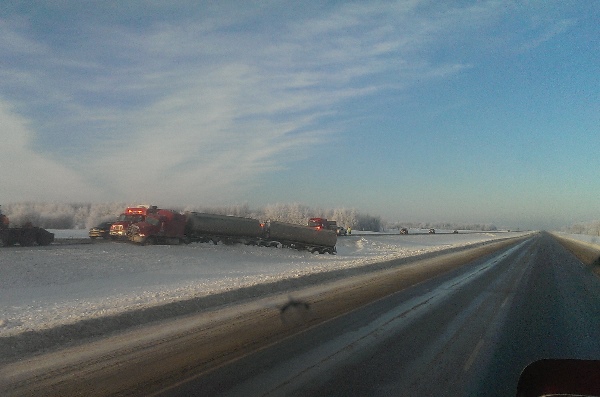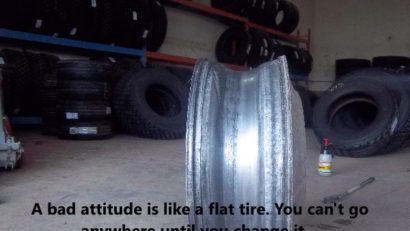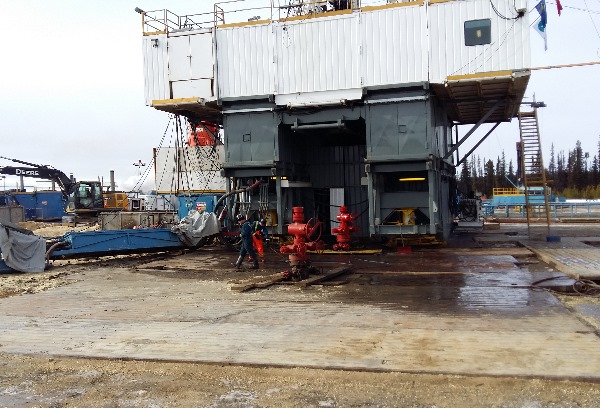- SEEM-Safe Efficient Ethical Moral
- LUCK – Labouring Under Correct Knowledge
- Truck Driving Safety
- Bending The Rule
- Practical wisdom and Prudent driving
- Balancing Confidence and Caution
“Experience” and “Professional” have to be the two most misunderstood and overused words in the working world.
Experience = Knowledge or practical wisdom gained from what one has observed, encountered, or undergone.
The Dictionary
I don’t usually quote a dictionary, but this definition proves another point. It says “Knowledge or practical wisdom gained”. The knowledge is automatic. The practical wisdom isn’t.
Unfortunately, we never hire people based on practical wisdom. Most companies put experience at the top of the list of reasons to hire an employee. For some reason, it’s automatically assumed that by having experience you know what you’re doing and you’re good at it. Sometimes, it’s even associated with being a professional or an expert, which is simply not the case.
“Experience is a tool for your mind, and its value is dependent on the user.”
If you look through a job or career section of any newspaper or website you’ll notice almost every ad you see requires “Experience”.
I never saw any value in hiring someone that had experience, but never learned anything good from theirs. You can’t become a professional or expert without practical wisdom. You could have all the experience in the world, and still be a dangerous driver.
If you don’t like Aristotle’s ideas of practical wisdom you can think about it another way. Just over 100 years before Aristotle and half way across the continent, there was another great philosopher writing down ideas for fortune cookies.
“He who learns but does not think, is lost. He who thinks but does not learn is in great danger.”
Confucius
Most employers don’t know the difference between a knowledgeable applicant and a professional.
Here’s why.
Very few companies ask questions during an interview that require rational thinking and moral responses to find out if the applicant is a professional or not.
Instead, they talk back and forth about how much knowledge each one of them has. Hell, they can barely find a “body” to fill space these days, let alone a knowledgeable one. That’s OK, because this quote from J. Paul Getty sums it up,
“The employer usually gets the employee they deserve.”
“Professional Truck Driver”
This is the other term tossed around all too frequently and there’s no real definition for it. It’s hard to imagine how a relatively undefined term can be used to the extent this one is. I didn’t find much on my Google searches.
“Undertaken or performed for gain by people who are paid.” was one of them, and “Extremely competent in a job” was the other. If we use “Extremely competent in a job.”, that puts the number of professional drivers below the 5% mark. If we take out the word extremely, we might be able to bump it up to 30% or 40%.
I’ve also seen some trucking sites and companies with some really good definitions. They refer to a professional driver as someone,
“Having the ability to represent themselves and their company prudently through all aspects of their job.”
A professional trucker is said to have a positive work attitude that allows them to consistently fulfill their duties of safe operation, and service.
These make sense, although, I’d define a Professional Truck Driver in this way.
Professional truck driver – “One who possesses the practical wisdom to consistently make prudent decisions based on the knowledge gained from experience.”
If defensive driving teaches you what to think about behind the wheel, Practical wisdom and prudent driving explains how to think behind the wheel. Safe driving is a virtue to a professional truck driver where all their actions consistently and continually achieve “Moral Excellence.”

2001 Kenworth W900 hotel Kenworth on ice. Sweet spots and sweat spots. The temperature is never right.
How do you know when you’ve gained practical wisdom? It feels like you switched on a light in your brain and you can see everything more clearly.







